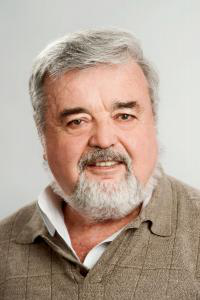The Role and Character of Micro-Fracture Events in Determining Crack Growth Rate
[abstract] This paper explores the role and character of the micro-fracture events occurring at the crack tip in determining crack growth rate in steels under tensile loading when in contact with aqueous environment. The evidence for microstructural events arises from a variety of experiments, primarily from acoustic emission and coupling current monitoring. For example, analysis of the noise in the coupling current when the experimental conditions have been judiciously chosen, such that the micro-fracture events are delineated in the time domain, and noting that the crack growth rate, dL/dt = fc, where f is the micro-fracture frequency and c is the micro-fracture dimension, reveals that f is determined primarily by the stress intensity factor and yield strength/hardness of the steel, while c is determined primarily by electrochemical factors.If c were determined by slip, then its dimension should be some small multiple of the Burger's vector or a few nanometers. However, for IGSCC in sensitized Type 304 SS in high temperature water, c is estimated to be 2-3 micrometers and it is even larger (tens of micrometers) for fracture of this steel in thiosulfate solution at ambient temperature.For IGSCC in AISI 4340 steel in 6 M NaOH at 70 oC, c is found to be greater than the prior austenite grain size. Thus, had c been consistent with slip at the crack tip, the value of f should have been in the kHz range, in order to account for the observed crack growth rate. It is apparent, therefore, that the slip-dissolution-repassivation (SDR) model for environmentally-assisted fracture in these steels is inadequate and that the micro-fracture dimension is determined by hydrogen induced fracture ahead of the crack tip.
时间:2016年8月9日 09:00-09:30
报告人:Digby D. Macdonald
个人简介

Digby D. Macdonald
Professor in Residence Departments of Nuclear Engineering and Materials Science and Engineering University of California at Berkeley,USA.
Professor Macdonald gained his BSc and MSc degrees in Chemistry at the University of Auckland, New Zealand, and his Ph.D. degree in Chemistry from the University of Calgary in Canada. He has served as Director and Professor of the Fontana Corrosion Center, Ohio State University, Vice President, Physical Sciences Division, Stanford Research Institute(SRI) International, Distinguished Professor of Materials Science and Engineering at Pennsylvania State University and professor in residence in UC Berkeley from 1984 to present.
Under his tutelage, more than 150 students have graduated with advanced degrees in Chemistry and Materials Science and Engineering over the past four decades. He has published more than 950 papers, plus four books, one of which (“Transient Techniques in Electrochemistry”) established an important area of electrochemical research, and has 10 patents and numerous invention disclosures credited to his name. His professional competence lies in the fields of electrochemistry, corrosion science, battery science and technology, thermodynamics, chemical kinetics, high temperature aqueous chemistry, nuclear power technology, energy conversion technology, and physical chemistry.
Professor Macdonald has received numerous awards and honors, including the 1991 Carl Wagner Memorial Award from The Electrochemical Society; the 1992 Willis Rodney Whitney Award from The National Association of Corrosion Engineers; the H. H. Uhlig Award from The Electrochemical Society; the U. R. Evans Award from The Institute of Corrosion, UK; the 20th Khwarizmi International Award in fundamental science.
He is an elected fellow of NACE-International; The Electrochemical Society; the Royal Society of Canada; the Royal Society of New Zealand; ASM International and the International Society of Electrochemistry. He was awarded the Faraday Memorial Gold medal in 2012 for his work in electrochemistry and was recently announced the winner of the Gibbs Award from the International Association on the Properties of Water and Steam (IAPWS)。 He was also just selected as the winner of the Frumkin Medal of the International Society of Electrochemistry, the most prestigious award in the field of electrochemistry. He was nominated for the 2011 Nobel Prize in Chemistry.